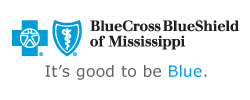Manage Your Cholesterol
If you need help managing your cholesterol, here’s the good news – lifestyle changes can often help! You can start by eating a healthy diet, exercising regularly, avoiding tobacco use and through regular check ups with your Network Provider. However if lifestyle changes are not enough, it's important to work with your provider to create a cholesterol management plan. Here are some things you need to know about cholesterol.
Cholesterol is produced naturally in the body and supports normal bodily functions. It is also found in foods we eat, like animal products. The problems arise when our bodies have too much cholesterol. This can be the result of eating unhealthy foods, poor lifestyle habits and even your family history. Your age and gender can also increase your risk of developing high cholesterol. Having your cholesterol checked each year is an excellent way to manage your health and prevent diseases like cardiovascular disease.
When you have your cholesterol levels checked, the screening includes your LDL (bad) cholesterol, HDL (good) cholesterol and triglycerides.
- LDL (low-density lipoprotein) also known as the “bad” cholesterol. The higher your LDL, the greater your risk of developing heart disease. A "healthy" range for LDL is <100, while 190 or above is considered high risk.
- HDL (high-density lipoprotein) is your “good” cholesterol and helps to clear arteries. A healthy level of HDL can help protect you from heart attack and stroke. Men should aim for an HDL level above 40, while women’s should be over 50. Regular physical activity is an effective way to raise your HDL.
- Triglycerides are blood fats primarily derived from foods we eat. High triglycerides increase your risk of heart disease and should be 150 or less.
Our Healthy You! wellness benefit provides covered members with an annual wellness visit, which includes cholesterol screening. You can learn more about Healthy You! in the 'be healthy' section of our website.
If your doctor recommends taking steps to manage your cholesterol, best-practice medical guidelines indicate that the first steps should include:
- Sticking to a heart-healthy diet including increased vegetables, fruit and whole grains with limited salt, sweets, sugary drinks, red meats and saturated/trans fats;
- Participating in regular aerobic physical activity 3-4 times per week;
- Avoiding tobacco products;
- Maintaining a healthy weight;
- Managing any other elevated health numbers for blood pressure and/or blood sugar.
At Blue Cross & Blue Shield of Mississippi, we’re committed to giving you the information you need to make wise decisions when it comes to prescription medications. We do this by monitoring healthcare trends, especially those related to prescription drugs, and supporting you in making cost-effective and medically-effective choices. If your Network Provider determines you need a prescription medication to manage your cholesterol, ask for a generic or low-cost alternative to brand name drugs. There are a wide variety of generic statin medications that are equally effective as brand name statins. You can also search for generic and low-cost alternatives to many medications through myBlue on our website. If you haven't registered for myBlue, we encourage you to do so!




 Women's Health
Women's Health Eat Healthy
Eat Healthy Exercise
Exercise Health & Wellness Articles
Health & Wellness Articles